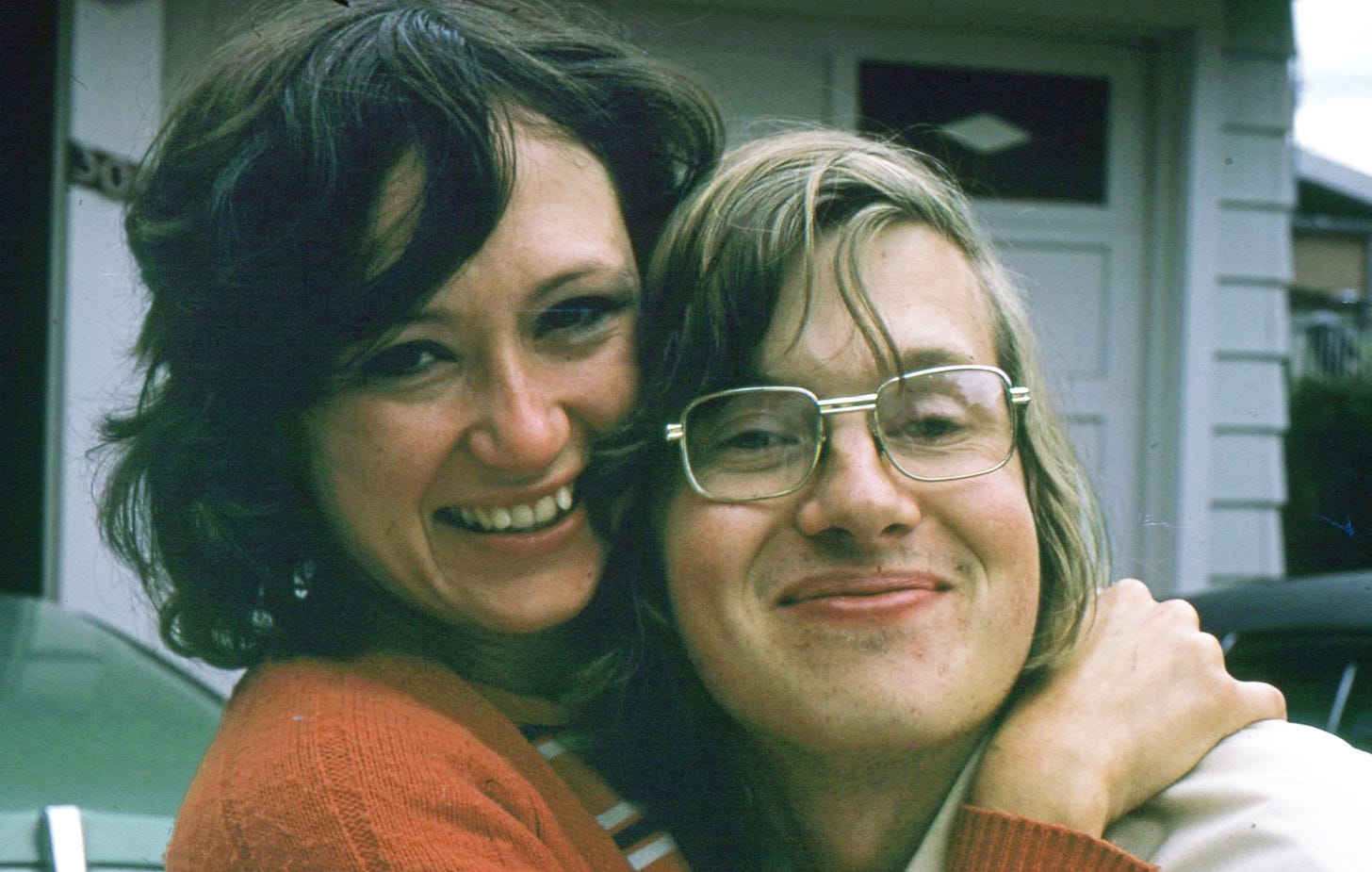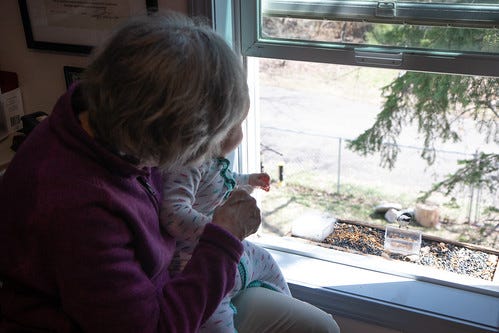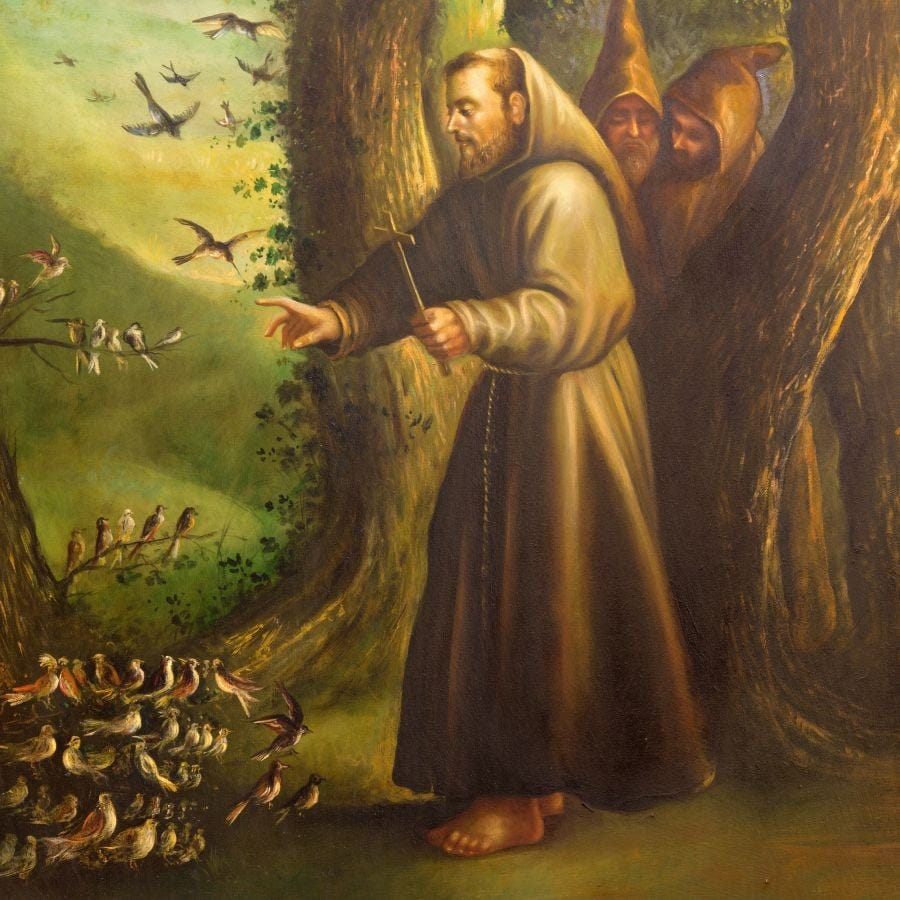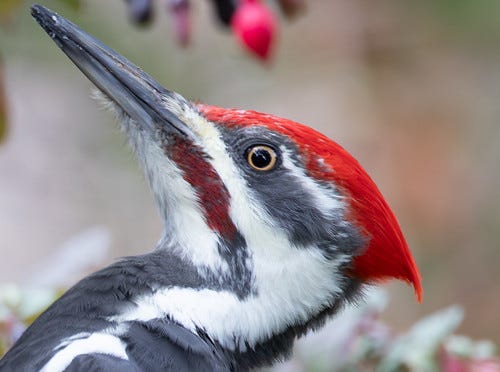(Listen to the radio version here.)
From the moment babies first pull themselves up to stand and fall flat on their face, everyone encourages them to try again. One of my favorite Paul Simon songs, on his 1973 album There Goes Rhymin’ Simon, includes the lyrics, “You’ve got to learn how to fall before you can learn to fly.” He was 32 years old when that came out.
Fred Astaire was about 37 and Ginger Rogers just 25 when they filmed Swing Time, released in 1936, in which they cheerfully sang:
Don't lose your confidence if you slip.
Be grateful for a pleasant trip,
And pick yourself up,
Dust yourself off,
And start over again.
When Ulysses S. Grant was reviewing troops in New Orleans, his horse panicked hearing a locomotive, stumbled, and fell on Grant's leg. Grant wrote that he was “rendered insensible” and awoke in a hotel bed with several doctors looking over his leg, swollen from knee to thigh. Grant described the pain as “almost beyond endurance.” He was bedridden for over a week, unable to even turn over by himself. When he could stand the pain, he took a steamer up the Mississippi to Vicksburg, and before he was walking without crutches or help, he was already literally back in the saddle again. He was 42. (Gene Autry was 32 when he wrote and recorded the song “Back in the Saddle Again” in 1939.)
But when you’re 71 and fall off your bicycle, even if your only injuries are a scraped knee and a broken pinkie, suddenly people frown and scold and try to shame you the moment you say you’re going to get back on the bike again.
I can sort of understand that—I’m on blood thinners for life, making injuries a bit more treacherous, and my grandpa was younger than I am now when he slipped on ice and broke his hip. But still! It sucks when people expect me to give up things I love just because I’m 71, especially when they tell me it’s my responsibility to my family and friends to be more cautious now. It rankles to hear that when so many people, young and old, refuse to take responsibility for things that hurt far more people and other living beings than one old lady falling off her bike possibly could.
Long ago, I was a Catholic girl who aspired to be a nun; Russ went to public school where he was an extremely conscientious student who aspired to be, and actually became, an environmental scientist. (Spoiler alert: I did not enter the convent.)
As we reached young adulthood, we took falling, in both the literal and figurative senses, pretty much in stride even as we continued to take the concept of responsibility extremely seriously. We knew as a fact, as certain as the sky is blue, that it was the responsibility of every individual, starting with us, to do everything we could to treat every human being with fairness and kindness, and to protect this planet for future generations.
We knew back then that we had to save energy to protect the planet from both pollution and climate change, so we rode our bikes or walked whenever we possibly could, carpooling with another student when we took summer classes at the Kellogg Biological Station 80 miles away so she wouldn’t have to drive a separate car. We chose our first car, a Pinto, to get the best gas mileage we could, and made energy conservation the most important consideration in just about every major purchase we’ve ever made.
Over the years, our sense of responsibility for the planet has grown rather than shrunk. Our sense of personal harm from the effects of climate change has grown, too—after all, long after we’re dead and gone, our children, our grandson, and the chickadees and Blue Jays and Pileated Woodpeckers and other creatures we love will still be right here on this very planet. How could we not feel personally affected by and responsible for their survival and well-being? The more we love, the more we have at stake.
Russ’s sense of responsibility originated with his parents and was nurtured by his own thoughtful consideration. Mine originated in my deep religiousness. My teachers were all nuns who had taken a vow of poverty or lay teachers who might as well have, based on the pittance they were paid. I vividly remember at least one nun always referred to money as “filthy lucre,” and one of our priests defined prostitution as doing anything for payment that violated your conscience or harmed others. St. Francis of Assisi was my hero, both for his love of all creatures great and small and his choice to live his life in poverty, knowing the difference between real and artificial wealth.
My sense of morality was also nurtured in public high school. In English, I memorized John Donne’s No Man Is an Island, and in choir, we sang Joan Whitney and Alex Kramer’s powerful song based on that poem:
No man is an island, no man stands alone.
Each man’s joy is joy to me,
Each man’s grief is my own,
We need one another, so I will defend
Each man as my brother,
Each man as my friend.
Of course, in St. Francis’s world and mine, the concept of “each man as my friend” is inclusive, encompassing not just all human beings but so many other living beings.
In public high school, getting to know so many non-Catholics for the first time in my life, I learned that belief in a particular religion, including my own, wasn’t necessary or sufficient to be a good person. I was also starting to realize that a lot of my faith and trust in people—Catholic and non-Catholic alike—was misplaced. A brand new survey from the Pew Research Center has quantified just how deluded I was. Worse, it makes it clear that a huge majority of my own age cohort—people who were taught the same kinds of values in the same kinds of schools I was—don’t assume any responsibility for protecting this world that their own loved ones need. The survey found that a full 84 percent of respondents 65 and older think they will have to make just minor sacrifices in their lives, or none at all, because of global climate change!
During World War II, Americans of all ages grumbled about the sacrifices they were forced to make because of the war effort, but criticizing the policies behind food and gas rationing and other restrictions was considered egregiously unpatriotic. At least for the duration, most Americans really had a “we’re all in this together” attitude.
Now it’s all about grabbing for all the gusto you can and whistling past the graveyard rather than acting responsibly about climate change, an existential crisis as dire as a world war, and one people have been warning about for more than half a century. Yet 84 percent of people my age refuse to take it seriously or make any sacrifices beyond changing their travel plans if a Maui, Acapulco, or other climate-related disaster strikes.
Russ and I were just at an 80th birthday party for a friend and talked to a few of Russ’s retired co-workers who have solar panels and/or heat pumps. Everyone said they started out computing how much money they’d save in energy costs versus how much they’d spend for the new technology, but quickly realized it didn’t matter if it paid off during our lifetimes. From the moment the solar panels and heat pumps were hooked up, we were enjoying a payoff far more satisfying than dollars. Doing everything we can to protect this beautiful planet and everyone we love may not enrich our wallets, but sure does enrich our souls.











